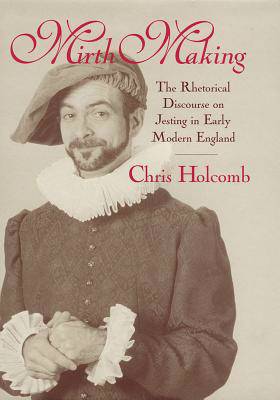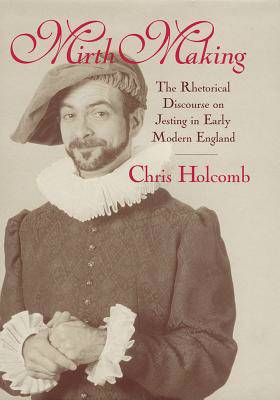
- Afhalen na 1 uur in een winkel met voorraad
- Gratis thuislevering in België vanaf € 30
- Ruim aanbod met 7 miljoen producten
- Afhalen na 1 uur in een winkel met voorraad
- Gratis thuislevering in België vanaf € 30
- Ruim aanbod met 7 miljoen producten
Zoeken
€ 46,45
+ 92 punten
Omschrijving
MIRTH MAKING examines the complex and often contradictory ways in which writers of rhetoric and courtesy manuals during the English Renaissance counseled their readers on the powers and hazards of jesting. Shedding light on a subject largely neglected by contemporary scholars, Holcomb's pathbreaking study demonstrates how such humor-related advice points to and participates in broader cultural phenomena - most notably the era's increase in social and geographic mobility and the contest between authority and subversion. Describing the English Renaissance as a brief but crucial phase in the history of jesting discourse, Holcomb differentiates humor-related counsel of the period from that of classical and medieval sources by its focus on communication between people of different stations. Holcomb shows that, in a changing society, handbook writers presented jesting as a socially conservative force and suggests that with a well-placed jest or quip, an orator might enhance his status and persuasive power or shame and ridicule those beneath him. Holcomb also recognizes, however, that rhetoricians confronted significant challenges as they sought to capture, explain, and teach a strategy b
Specificaties
Betrokkenen
- Auteur(s):
- Uitgeverij:
Inhoud
- Aantal bladzijden:
- 224
- Taal:
- Engels
- Reeks:
Eigenschappen
- Productcode (EAN):
- 9781570033971
- Verschijningsdatum:
- 1/07/2001
- Uitvoering:
- Hardcover
- Formaat:
- Genaaid
- Afmetingen:
- 160 mm x 238 mm
- Gewicht:
- 512 g

Alleen bij Standaard Boekhandel
+ 92 punten op je klantenkaart van Standaard Boekhandel
Beoordelingen
We publiceren alleen reviews die voldoen aan de voorwaarden voor reviews. Bekijk onze voorwaarden voor reviews.











